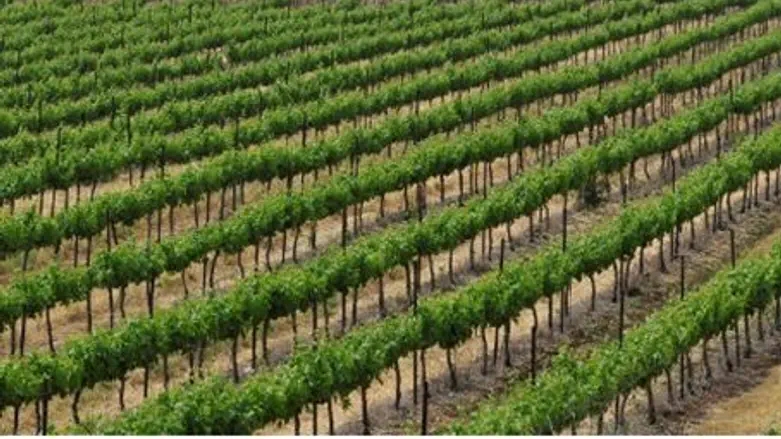
Jewish farmers in the town of Ahiya in Samaria (Shomron) are facing the threat of losing valuable vineyards. The IDF’s Civil Administration may confiscate the land, despite the fact that no Palestinian Arab has appeared to claim it.
The land seizure would be allowed under a “disruptive use order” (tzav shimush mafria). Such orders were termed “draconian” by the Levy Report on Israeli settlement in Judea and Samaria.
“Disruptive use” orders allow the Civil Administration to seize land from Israelis in Judea and Samaria based on complaints from Palestinian Arabs, whether or not there is any evidence that those complaining own the land – or, in fact, that anyone owns the land.
In the case of the farmers from Ahiya, a man has complained over their use of the land, but has not provided any proof that he or anyone he knows owns it. He alleges that his father owned land somewhere in the Shilo valley area, a large region which includes the 80-dunam stretch on which the Jewish farmers’ vineyard sits.
The Levy Report suggested that the state of Israel stop using “disruptive use” orders entirely. However, the report has not been implemented, and the orders remain legal.
An appeals committee that heard the Ahiya case criticized the use of the order, noting the lack of a claimant to the land, but decided not to block the order, effectively allowing the land seizure to go ahead.
The Land of Israel Lobby in the Knesset responded Tuesday to the appeals committee’s decision. “The appeals committee’s finding is a serious indictment against the ‘disruptive use’ order, an order which the Levy report termed ‘draconian’… The decision proves that these orders lead to extreme injustice,” the lobby said in a statement.
“We call on the Defense Minister to adopt the spirit of the decision, to cancel the ‘disruptive use’ orders immediately and to declare that from now on the persecution of Jewish farms will end, and land disputes will be decided by the courts,” it concluded.